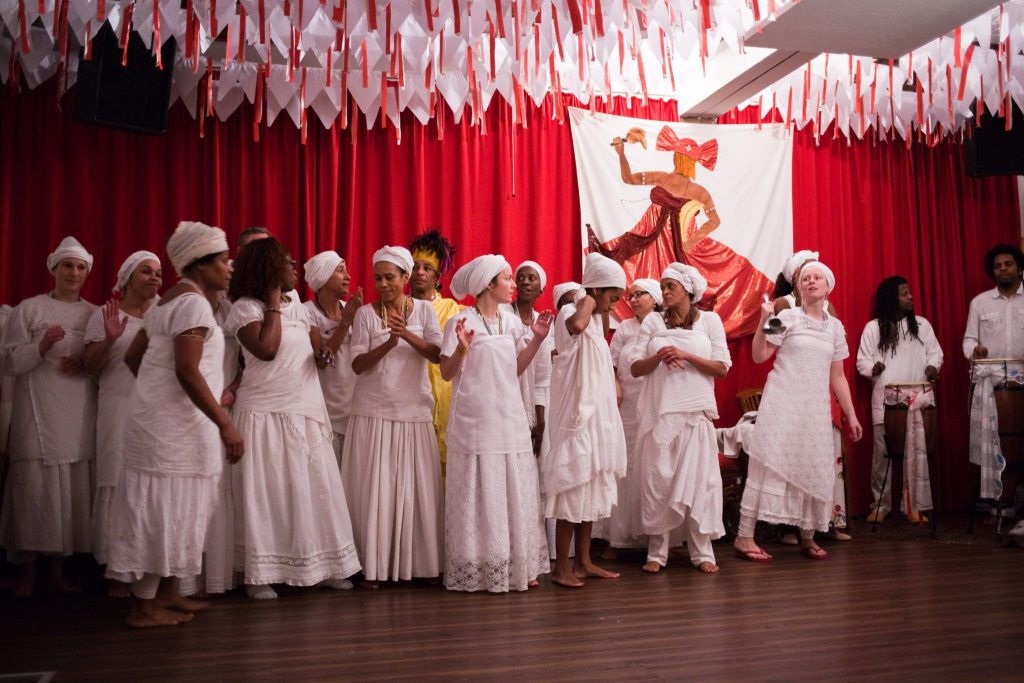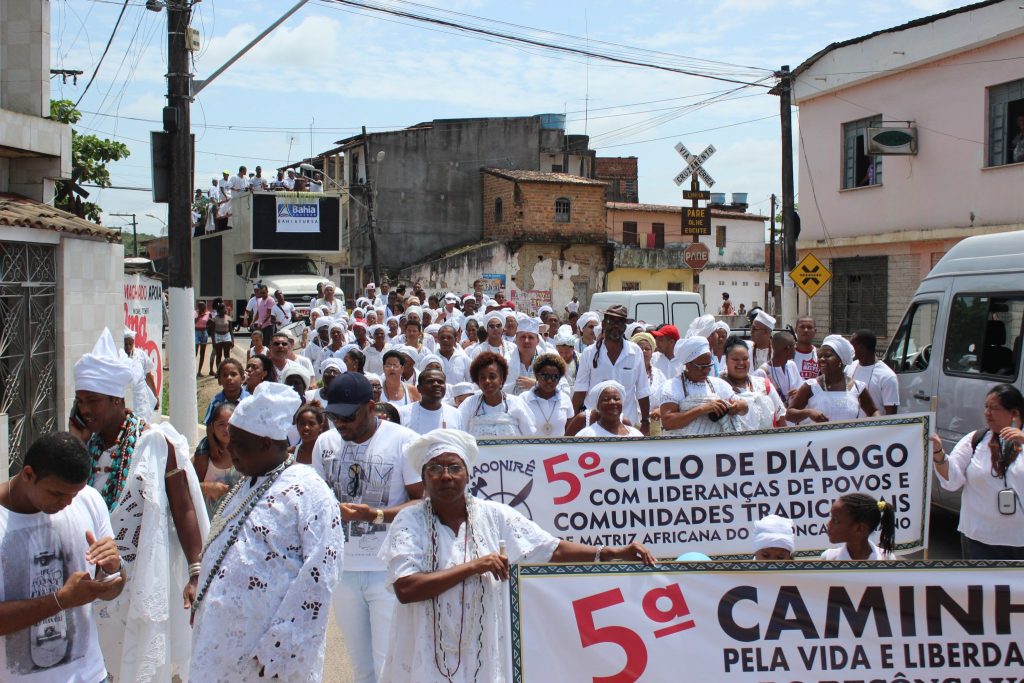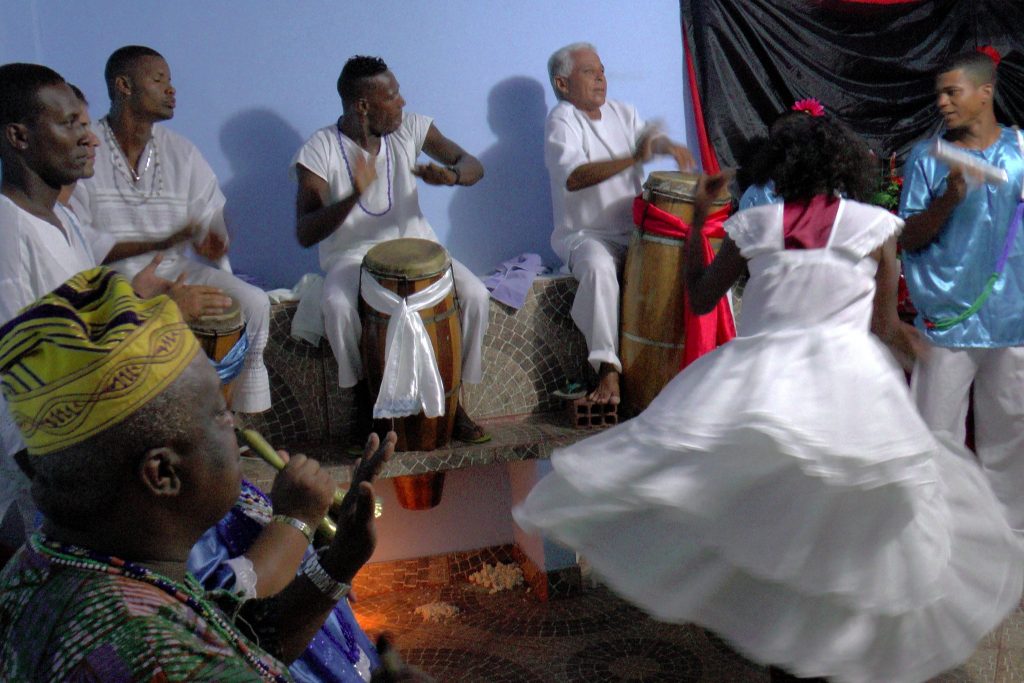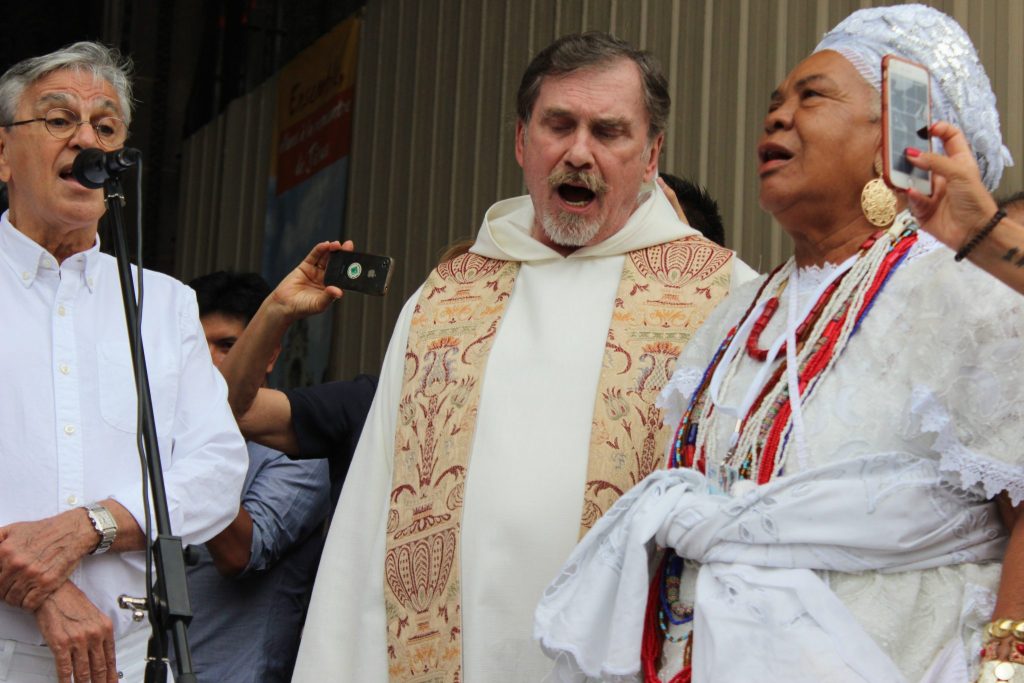Ph.D. Research on the transcultural embodiment of Candomblé
Seeking to understand how an oral tradition “preserves” itself, in my Ph.D. research I examined the dynamics of transmission of bodily knowledge in the Afro- Brazilian religion of Candomblé. Therefore, I undertook extensive ethnographic fieldwork in two contrasting contexts of transmission, a cosmopolitan one, Berlin, and the original one, Bahia, in Northeastern Brazil. The fact that Brazilians and foreigners in and from different cultural contexts identify and build bonds with orixás, West-African deities, turns the religion into a paradigm of transculturality, stressing the intersection of common experiences across cultures.
Candomblé is bodily transmitted through what leaders call “initiatory practice”, i.e. mainly through practice and not through registers such as books. By turning my body into a point of departure for understanding the process of learning religious songs and dance steps of the orixás, I embodied the meanings and values of the religion. To unintentionally become a Candomblé believer while focusing on processes of mimetic learning provided me with a particular perspective on the dynamics investigated.
In my thesis, I first scrutinize the multiple layers of embodying a practical sense, from the mere memorizing of lyrics or gestures within a community of practice until starting to sense the orixás in everyday life as well as in its most subjective dimensions: dreams and trance states. From there, I account for the broad horizon of “learning to be affected”, which might, as in my case, lead to affiliation to a practice and to personal engagement towards its maintenance.
Not only did I understand, but sense the subjective experience of learning a tradition while constituting its meanings and values through and within my body. This enabled me to deeper comprehend the experiences of other members in their “coinciding” with mine, as shared in the field as well as through semi-structured interviews. These ever-evolving processes shaped as well as were shaped by my methodological and theoretical choices, as well as the representation form of the thesis. Being transformed both by my academic background and by the field, the thesis strives to evoke such transformations through a writing informed by sociological reflexivity and symmetrical anthropology.
The investigation proposes that embodying Candomblé involves, more than acquiring practical skills, the sedimentation of its meanings and values in the body and thereby the development of a more resonant way of being-in-the-world. Through such process, intense sensorial and communal experiences, regardless of cultural context and background, affect while integrate subjects to their surrounding world – humans, nature, deities – and their selves.
Keywords: Candomblé, embodiment, mimetic learning, practical sense, transculturality.
Department: Anthropology of Education and “Interart Studies”, Free University of Berlin
Supervisor: Christoph Wulf
Defence: January 2017
Result: Summa cum laude
Funding: Scholarship from the international research group “Interart” (DFG, German foundation for sciences)
Publications
- GRAEFF, Nina. 2014. „Ich werde mein Orixá. Mimetische Prozesse in der Weitergabe des Candomblé in Berlin“, In: Paragrana23/2 (Nov. 2014). 216–228.
- GRAEFF, Nina. 2015. „Afro-brasilianische Götter in Deutschland? Immaterielles Kulturerbe weitergeben“, Deutsche UNESCO Kommission. Link
- GRAEFF, Nina. 2015. „Transmitiendo y preservando lo ‚inmaterial’ en una casa de candomblé en Berlín”, In: Ensayos: Historia y Teoría del Arte25/17. Link
- GRAEFF, Nina. 2015. “Embodying Candomblé Dances, Safeguarding Intangible Heritage”, In: Dance, narratives, heritage: 28th symposium of the ICTM Study Group on Ethnochoreology: Zagreb, Croatia: Institute of Ethnology and Folklore Research; ICTM Study Group on Ethnochoreology. 280-285.
- GRAEFF, Nina. 2018. „Singing by and with heart: embodying Candomblé’s sensuous knowledge through songs and dances in Berlin”. Revista Orfeu 3/2. 44-71. Link
- GRAEFF, Nina. 2019. „’Re-ligare’ als Weltvervollständigung: Die Schöpfung im Berliner Candomblé“. In: Jeder nach seiner Façon – Vielfalt und Begegnung der Religionen in Berlin– Diesseits und Jenseits vom Paradies, ed. by Berliner Forum der Religionen. in press.









